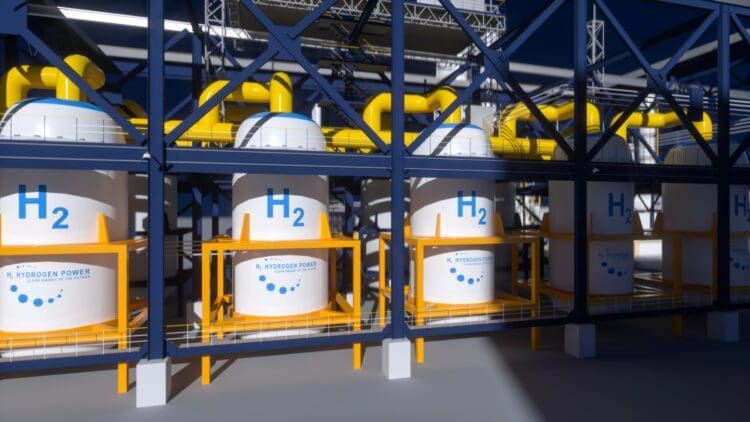Decarbonizing the global energy sector has become a top priority for the vast majority of nations across the world. Ensuring cuts in emissions can completely transform the climate crisis that the world is being subjected to. Now, it has emerged that the DNV, a global independent assurance and risk management provider, has noted that the renewable energy sector will account for over 25% of emission reduction levels in the Asia-Pacific region, with hydrogen, ammonia, and emerging fuels playing a critical role.
New Energy Commodities (NEC) will be essential to reducing emissions in APAC
DNV has become a global leader in the analysis of the emission goals of the world. The Asia-Pacific region, known most of the time as APAC, will see its New Energy Commodities playing a crucial role in cutting emissions in the region, with hydrogen, ammonia, and emerging fuels playing a major role in reaching APAC’s emission goals by 2050.
According to a new report from DNV, NECs will account for roughly 25% of APAC’s emission reduction over the next decade or so, as the sector has seen significant growth in the region and further afield over the past few years. Reducing emissions will allow the planet to recover from generations of abuse from the fossil fuel sector, with NECs playing an essential role in APAC specifically, as noted by DNV’s leadership.
““Reaching net zero won’t be possible without NECs, especially in Asia-Pacific where diverse solutions are needed due to the region’s geography. Hydrogen, ammonia, sustainable fuels, and carbon capture are essential for industries that are hard to decarbonize. Without expanding NECs, these sectors risk falling behind. – Brice Le Gallo, Vice-President and Regional Director, Asia Pacific, Energy Systems at DNV
DNV published its report at a recent renewable energy summit in Singapore
During the recent Asia Clean Energy Summit (ACES), held in conjunction with Singapore International Energy Week (SIEW) 2025, DNV released its report titled The role of new energy commodities in decarbonizing Asia Pacific. The report finds that NECs will account for approximately 25% of APAC’s emission cuts over the next few decades as the world turns to the renewable energy sector.
Furthermore, the report finds that several APAC nations will see increases in NEC consumption, with Japan, South Korea, and Singapore expected to become top consumers of the NEC sector, although it should be noted that they will mostly rely on foreign imports. Certifying low-carbon energy is the name of the game for DNV. Europe has also seen its Parliament approve a new framework for low-carbon hydrogen certification, pointing to the role that hydrogen will play in the global energy sector over the next few decades.
DNV’s management has noted the importance of decarbonizing several sectors in APAC, with the organization’s leadership lamenting the slow adoption of the NEC sector.
“Within the region’s diverse range of countries, six key industries (aviation, maritime, steel, power, industrial chemicals and cement) will depend heavily on NECs to achieve deep decarbonization.” – Thomas Koller, Regional Hydrogen, Ammonia and Sustainable Fuels Lead, Asia Pacific, Energy Systems at DNV
Hydrogen is finally getting the attention it deserves, although there is still some stagnation in Europe
The warm embrace that the APAC region has given to hydrogen and other NECs is a welcome sign of the current trend emerging across the energy biosphere. Most developed nations have plans in place to provide substantial investments into hydrogen, but Hydrogen Europe has noted that the European continent is set to miss its self-imposed green hydrogen goal. Whether or not the rest of the world can follow APAC’s example is difficult to predict, but at least the Asia-Pacific region has embraced the potential that hydrogen has in reducing emissions.






